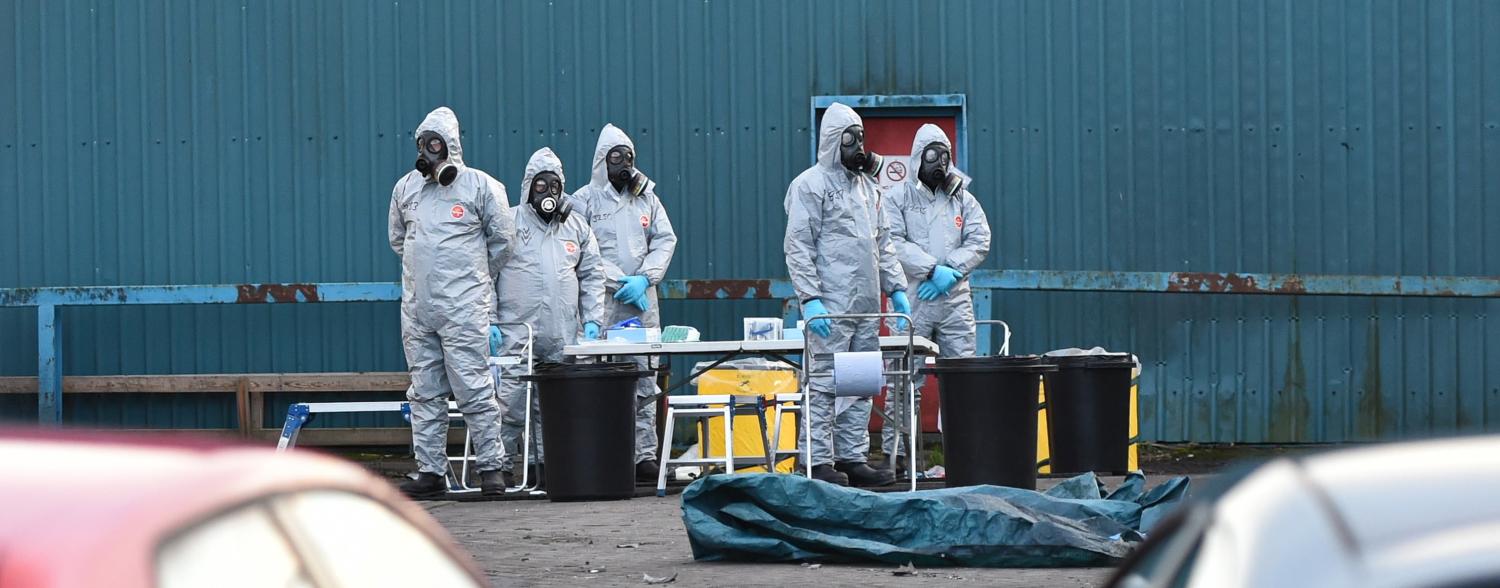The week that was on The Interpreter.
In response to the poisoning of former Russian spy Sergei Skripal in England, 28 countries expelled Russian intelligence officers posing as diplomats. Shashank Joshi:
But the unprecedented international rejoinder to Russia – the largest collective expulsion of intelligence officers in history – demonstrates the strength of British claims. EU diplomats noted that Britain’s briefings, “including much that is not in the public domain”, were “extremely convincing” on Russian responsibility. It is reported that the UK divulged “unprecedented levels of intelligence”.
Later this month, an historic summit will bring together South Korean President Moon Jae-in and North Korean leader Kim Jong-un. Robert E. Kelly:
Moon surely sees himself as Nixon going to China, rather than Chamberlain going to Munich. We can always hope, of course. But that is not a strategy, and in the midst of all this year’s pleasant atmospherics, note that North Korea has yet to float one meaningful concession.
What does the Moon–Kim summit mean for Australia? Bec Strating:
While not geographically close to the peninsula, Australia has a stake in the upcoming dialogues. In October, North Korea claimed Australia was ‘showing dangerous moves of zealously joining the frenzied political and military provocations of the US against the DPRK’, and would be unable to avert disaster if it continued supporting the US.
Aisyah Llewellyn on Jakarta’s policy on illegal fishing operations in Indonesian waters:
One of the main reasons for the popularity of Susi Pudjiastuti, Indonesia’s colourful Maritime Affairs and Fisheries Minister, among fishermen in Medan is her policy of exploding fishing boats caught poaching aquatic life in Indonesian waters. Since 2015, Pudjiastuti has ordered the destruction of 380 boats.
Charles Edel on US interests in the Pacific Islands:
For the US, perhaps the biggest strategic challenge is one of time and attention paid to an important region that often slips under Washington’s radar.
Tongan Education Minister Penisimani Fifita reignited the row over a ban on female Tonga High School students playing rugby or boxing. Ofa-ki-Levuka (‘Ofa) Guttenbeil-Likiliki:
Complaints are never made against the use of foreign-made resources in Tonga – desks, chairs, computers, mobile phones, the fibre optic cable that has been recently upgraded – or wearing Western clothing, buying Western food, driving Western vehicles, speaking the English language, listening to foreign music, or watching foreign films and online content. That’s because “culture” is only ever used as an excuse when it comes to women and girls.
French Prime Minister Édouard Philippe signed off on the question for the November independence referendum in New Caledonia. Alexandre Dayant:
The presence of the terms “full sovereignty” and “independence” in the question is striking – why include both?
Hong Kong singer, actor, and LGBT+ activist Leslie Cheung, “the Elvis of Hong Kong”, died on 1 April 2003, 15 years ago last Sunday. Ting Huang:
Perhaps, in a way, Leslie never fit the mould of what Chinese society thinks a celebrity icon should be. Yet he broke ground and records like never before. Leslie was both an enigma and a legend of the most evolved form.
Merriden Varrall and Charlie Lyons Jones on the different powers to investigate corruption in the Chinese Communist Party and the Chinese state:
The old anti-corruption system was ineffective at prosecuting genuine corruption, as it gave local party cadres too much power. To reduce the influence of local party cadres, Xi needed to empower the state and allow it to help in prosecuting investigations.
Following the Cambridge Analytica scandal, CEO of Facebook Mark Zuckerberg has faced a public backlash against his company’s lax data protection. John Gooding:
The loophole that allowed Cambridge Analytica to make off with Facebook’s data has been closed for some time. But the scandal has nevertheless shattered the useful fiction that by using the service and agreeing to some nebulous terms, Facebook’s users consent for their data to be used as Facebook desires.
Saudi Crown Prince Mohammed bin Salman has been on an extended diplomatic and publicity tour, recently stopping in the US. Rodger Shanahan:
This Atlantic interview reinforced what we already knew: Muhammad bin Salman is highly ambitious, faces a complex society he seeks to change before it alters the monarchy, and has pretty firm views regarding Saudi Arabia’s role in the region.
